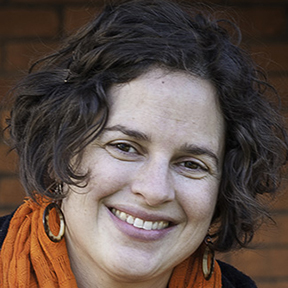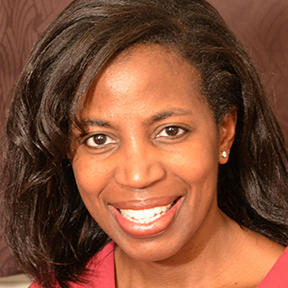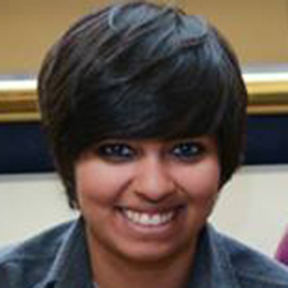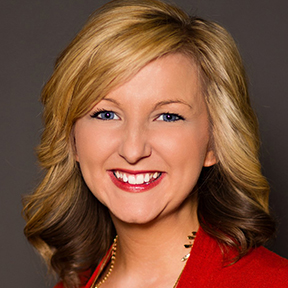Engaging Difference, Guest Presentation, June 1
Date: Monday, June 1
Time: 9:00 – 10:20 a.m.
Location: Mitchell Auditorium
Student Engagement and Inclusive Campus Environments from Summer Faculty Institute 2015
Welcoming remarks, Carol Henderson, Vice Provost for Diversity
Introduction of keynote speaker, Cheryl Richardson, Assistant Director, Center for Teaching and Assessment of Learning
 Shaun Harper, University of Pennsylvania
Shaun Harper, University of Pennsylvania
Shaun R. Harper is on the faculty in the Graduate School of Education, Africana Studies, and Gender Studies at the University of Pennsylvania, where he also serves as Executive Director of the Center for the Study of Race and Equity in Education. His research examines race and gender in education and social contexts, equity trends and racial climates on college campuses, Black and Latino male student success in high school and higher education, and college student engagement. Professor Harper has published 12 books and over 90 peer-reviewed journal articles and other academic publications. He has received over $11.7 million in research grants. Dr. Harper has been interviewed on CNN, ESPN, and NPR and featured or quoted in The New York Times, Los Angeles Times, Wall Street Journal, and over 400 other media outlets. He received the 2014 American Educational Research Association Relating Research to Practice Award and the 2008 Association for the Study of Higher Education Early Career Award. He earned his bachelor’s degree from Albany State, a historically Black University in Georgia, and his Ph.D. from Indiana University.
Digital Humanities, Guest Presentation, June 1
Date: Monday, June 1
Time: 1:00 – 3:00 p.m.
Location: Gore Hall 104
Public Humanities Roundtable from Summer Faculty Institute 2015
Jesse Stommel SlideShare Presentation: New-form Scholarship and the Public digital humanities
This year’s University of Delaware Summer Faculty Institute features a keynote roundtable, “Public Humanities 2.0: Cultural Heritage Research-and-Teaching in a Digital Age,” that will be an opportunity to focus attention on the materiality of digital media and the transformations of both scholarly communication and classroom practices made possible by digital media.
 Michelle Moravec, Rosemont College
Michelle Moravec, Rosemont College
Michelle Moravec is an associate professor of history at Rosemont College in Philadelphia, PA. After receiving her Ph.D. in US history from the University of California Los Angeles, she worked in a range of alt-ac positions including women’s leadership and directing the Women’s Center at William Paterson University. She is a frequent digital history workshop presenter. Her writings about the field have appeared in The Chronicle of Higher Education, Inside Higher Education, the University of Venus, and Women in Higher Education and at her monthly column for the Mid-Atlantic Research Center for the Humanities. Her current project, the Politics of Women’s Culture, is being written in public on the web and has been funded by the Getty Research Institute, the Schlesinger Library, and Barnard College Library.Her completed digital history projects include Gender in the History of Woman Suffrage, Unghosting Apparitional Lesbian History, and Visualizing Schneemann. She also collaborates with students at Rosemont College and Villanova University on two additional digital history project, Till I’ve Done All that I Can: Alma A Clarke’s Great War, and Chapel of Delight: the Chapel of the Immaculate Conception at Rosemont College.
 Jesse Stommel, University of Wisconsin
Jesse Stommel, University of Wisconsin
Jesse Stommel is Assistant Professor of Digital Humanities in the Department of Liberal Arts and Applied Studies at University of Wisconsin-Madison. He is also Founder and Director of Hybrid Pedagogy: a digital journal of learning, teaching, and technology. Jesse is an advocate for lifelong learning and the public digital humanities. He teaches courses about digital pedagogy, digital storytelling, horror film, and Shakespeare. He experiments relentlessly with learning interfaces, both digital and analog, and works in his research and teaching to emphasize new forms of collaboration. He can be found on Twitter @Jessifer.
 Janneken Smucker, West Chester University
Janneken Smucker, West Chester University
Janneken Smucker is Assistant Professor of History at West Chester University where she specializes in digital history, public history, and American material culture. In the college classroom, she integrates technology and the humanities, working with her students to create websites, podcasts, digital archives, and online exhibitions. In fall 2014, she co-taught “Digital Storytelling and the Great Migration to Philadelphia” with Professor Charles Hardy, teaming graduate students with undergraduate Honors College students and history majors in the creation of goinnorth.org. Prior to joining WCU’s faculty, Janneken was content specialist at Night Kitchen Interactive, a firm specializing in websites and digital projects for museums and cultural organizations. She recently served as co-curator and lead content strategist and editor for World Quilts: The American Story, a digital project of the International Quilt Study Center & Museum at the University of Nebraska—Lincoln. The author of Amish Quilts: Crafting an American Icon (Johns Hopkins University Press, 2013), Janneken lectures and writes widely on the topic of quilts for both popular and academic audiences. She earned her PhD from the University of Delaware’s Program in the History of American Civilization in 2010.
 LaTanya S. Autry, Yale University Art Gallery
LaTanya S. Autry, Yale University Art Gallery
LaTanya S. Autry is a Ph.D. candidate in the art history department at University of Delaware and the Marcia Brady Tucker Fellow in photography at Yale University Art Gallery. She studies art of the United States, photography, and museums. Her dissertation The Crossroads of Commemoration: Lynching Landscapes in America explores the meaning of representation, embodied practices, collaborative art, landscape, and memorial culture. The digital humanities are integral to LaTanya’s public scholarship and social justice orientation. As an educator, she has incorporated blogging and tweeting to increase class interaction, enhance learning, and engage diverse publics in her History of Photography courses. Outside of writing her dissertation and working at the Gallery, she presents her research at academic and public lectures and engages broad audiences via social media forums, such as WordPress, Twitter, Flickr, Google Maps, and Pinterest. After earning her degree LaTanya plans to “hack” her dissertation to co-produce a multimedia exhibition centered on lynching memorials.
 Archana Kaku, Tri-Co Digital Humanities
Archana Kaku, Tri-Co Digital Humanities
Archana Kaku is the Program Coordinator for Tri-Co Digital Humanities, a consortial DH initiative by Bryn Mawr, Haverford, and Swarthmore Colleges dedicated to promoting digital innovation through humanities-based inquiry. Her work focuses on not just the role of the undergraduate liberal arts institution, but of the undergraduate herself in digital humanities research, production, and exploration. She has also worked for the Provost Office’s Academic Technology Initiative at Bryn Mawr College.
Kristen Poole, English, University of Delaware
Critical Thinking, Guest Presentation, June 2
Date: Tuesday, June 2
Time: 9:00 a.m – 10:00 a.m.
Location: Mitchell Auditorium
Measuring and Enhancing Critical Thinking of Students from Summer Faculty Institute 2015
Slides from Kevin Harris keynote presentation (PDF format)
Introduction of guest speakers: Deborah Allen, Director of Center for Teaching & Assessment of Learning
The CAT Instrument (Critical thinking Assessment Test) is a unique tool designed to assess and promote the improvement of critical thinking and real-world problem solving skills. The instrument is the product of extensive development, testing, and refinement with a broad range of institutions, faculty, and students across the country.
Come and learn about what our own UD faculty learned about how well diverse UD seniors from the class of 2015 scored on this instrument. Learn how any faculty from any discipline can more purposefully develop course activities that will require students to exercise their critical thinking skills.
Tennessee Technological University (TTU) has been engaged in an extended effort during the last 14 years to develop and refine an instrument to assess critical thinking that over-comes many of the weaknesses of other existing tools. Preeminent theoreticians and educators in the area of learning sciences and assessment participated in the project. Unlike many other available assessment tools, the Critical thinking Assessment Test (CAT) instrument uses short answer essay responses to assess critical thinking. The CAT instrument is unique in that it utilizes a campus’s own faculty to evaluate student responses. The National Science Foundation has provided support for many of these activities.
 Kevin Harris
Kevin Harris is the Associate Director of the Center for Assessment and Improvement of Learning (CAIL) at Tennessee Tech University. In his role at CAIL, Dr. Harris leads regional training workshops to prepare institutions for the implementation of the Critical-thinking Assessment Test as a performance measure of student critical thinking and as a faculty development tool. Over the past two years, Kevin has helped develop a framework associated with using the CAT as a model for course based critical thinking assessments called CAT Apps. His academic interests include the effect of high impact practices on critical thinking, the use of the CAT as a faculty development tool, and the evaluation of alternative measures in the assessment of critical thinking.
 Elizabeth Lisic
Elizabeth Lisic is the Assistant Director of the Center for Assessment & Improvement of Learning (CAIL) at Tennessee Tech University. In her role at CAIL, Elizabeth provides support to institutions across the country in the implementation of the Critical-thinking Assessment Test (CAT) at multiple institutional levels. Elizabeth has extensive experience with CAT scoring sessions and helps lead training workshops throughout the country. Over the past two years, Elizabeth has helped develop the framework associated with using the CAT as a model for course-based critical thinking assessments called CAT Apps. She currently leads on-site workshops to help faculty develop and refine CAT Apps within their discipline. Elizabeth’s academic interests focus on the use of the CAT as a faculty development tool and the impact of CAT scoring as a catalyst for faculty change.
Digital Humanities, Guest Presentation, June 2
Date: Tuesday, June 2
Time: 10:30 – 12 noon
Location: Gore Hall 104
Measuring and Enhancing Critical Thinking of Students from Summer Faculty Institute 2015
Jesse Stommel’s The Decay of the Digital Human on Vimeo
This workshop will explore methods and approaches for designing assignments that leverage digital tools for humanistic inquiry. We’ll look at several digital humanities assignments as examples, but the workshop will also raise larger interdisciplinary questions. We will talk about when and how to assess digital projects. Much of our work in education resists being formulated as neat and tidy outcomes. When learning is the goal, space should be left for wonder and experimentation.
 Jesse Stommel
Jesse Stommel is Assistant Professor of Digital Humanities in the Department of Liberal Arts and Applied Studies at University of Wisconsin-Madison. He is also Founder and Director of Hybrid Pedagogy: a digital journal of learning, teaching, and technology. Jesse is an advocate for lifelong learning and the public digital humanities. He teaches courses about digital pedagogy, digital storytelling, horror film, and Shakespeare. He experiments relentlessly with learning interfaces, both digital and analog, and works in his research and teaching to emphasize new forms of collaboration. He can be found on Twitter @Jessifer.
Digital Humanities, Guest Presentation, June 2
Date: Tuesday, June 2
Time: 1:00 – 3:00 p.m.
Location: Gore Hall 104
Teaching with Social Media Platforms from Summer Faculty Institute 2015
Please note: To play along in this session, please create your accounts (and download apps) in advance in Tumblr, Pinterest, Twitter, Instagram, and Snapchat.
This hands-on workshop will walk participants through the application of various social media platforms, such as Tumblr, Pinterest, Twitter, Instagram, and Snapchat, to digital humanities pedagogy. Emphasis will be on the affordances of these platforms in creating a wide range of assignments.
 Michelle Moravec
Michelle Moravec is an associate professor of history at Rosemont College in Philadelphia, PA. After receiving her Ph.D. in US history from the University of California Los Angeles, she worked in a range of alt-ac positions including women’s leadership and directing the Women’s Center at William Paterson University. She is a frequent digital history workshop presenter. Her writings about the field have appeared in The Chronicle of Higher Education, Inside Higher Education, the University of Venus, and Women in Higher Education and at her monthly column for the Mid-Atlantic Research Center for the Humanities. Her current project, the Politics of Women’s Culture, is being written in public on the web and has been funded by the Getty Research Institute, the Schlesinger Library, and Barnard College Library.Her completed digital history projects include Gender in the History of Woman Suffrage, Unghosting Apparitional Lesbian History, and Visualizing Schneemann. She also collaborates with students at Rosemont College and Villanova University on two additional digital history project, Till I’ve Done All that I Can: Alma A Clarke’s Great War, and Chapel of Delight: the Chapel of the Immaculate Conception at Rosemont College.
Digital Storytelling, Guest Presentation, June 3
Date: Wednesday, June 3
Time: 9:00 – 10:00 a.m.
Location: Mitchell Auditorium
Digital Storytelling to Scholarly Storytelling from Summer Faculty Institute 2015
Alongside strong writing and speaking skills, crafting media messages represents an essential literacy helping students share their stories with a global audience. As media projects continue to increase in a range of academic areas, digital storytelling provides a common set of strategies and skills on which to build. Dr. Kyle Dickson will describe how faculty at Abilene Christian University paired training in media production with digital storytelling in courses from composition and journalism to psychology and math.
 Kyle Dickson, Abilene Christian University
Kyle Dickson, Abilene Christian University
Kyle Dickson directs the AT&T Learning Studio at Abilene Christian University, enabling students and faculty to craft media messages for a global audience. Since 2005, he has worked with the Adams Center for Teaching and Learning to support innovative faculty in podcasting, course blogging, and mobile learning. In 2011, he became director of the Learning Studio, part collaborative learning space, part media production sandbox. Since 1999, Kyle has sought to blur the edges of the classroom in residential, online, and study abroad courses. He developed inter-disciplinary courses for the ACU in Oxford and Summer Online programs as well as the national college curriculum for the This I Believe series on NPR. As associate professor of English, he regularly teaches undergraduate, graduate and honors courses in British literature, drama, satire, film, and media production.
 Shaun Harper, University of Pennsylvania
Shaun Harper, University of Pennsylvania









